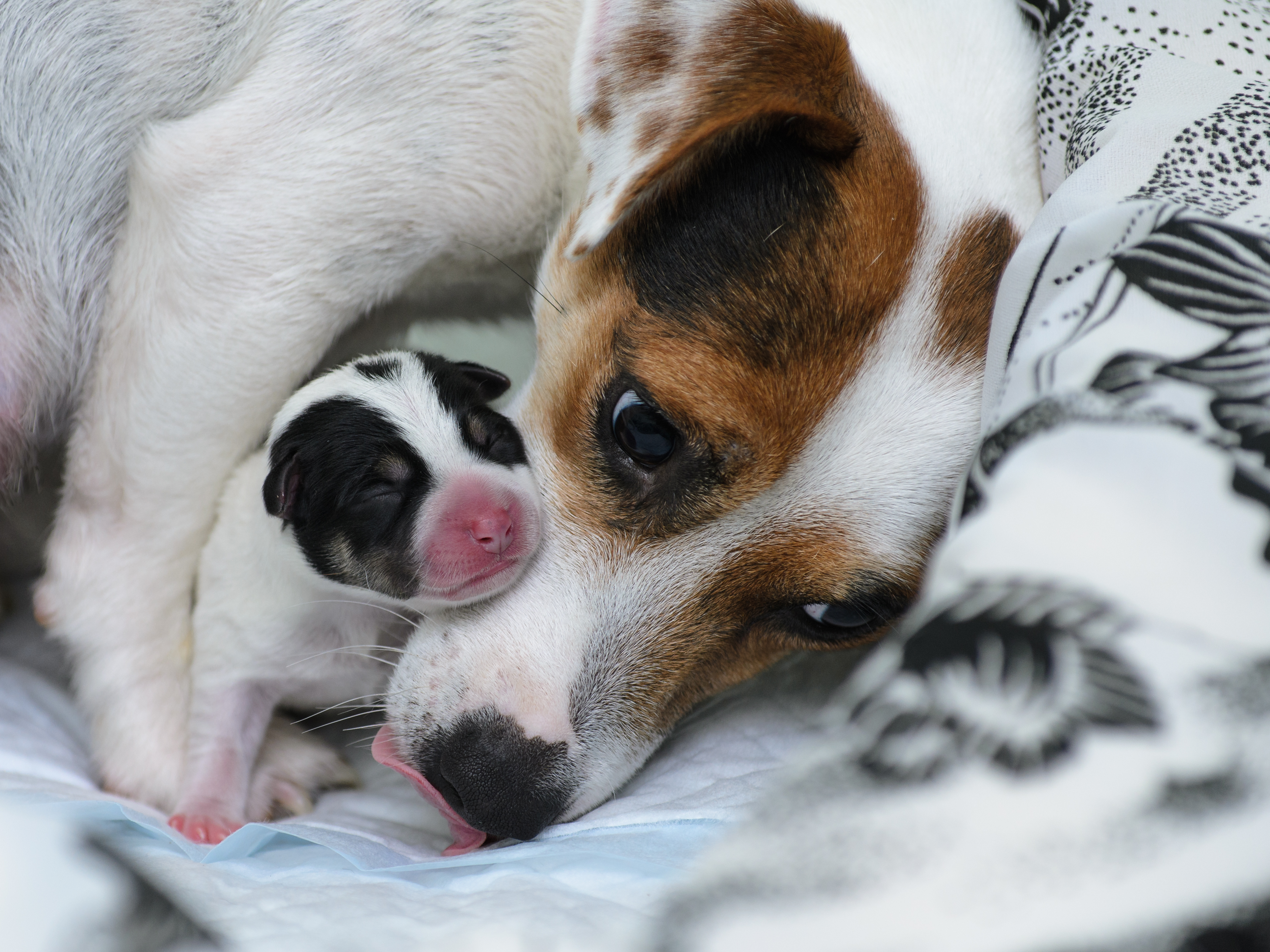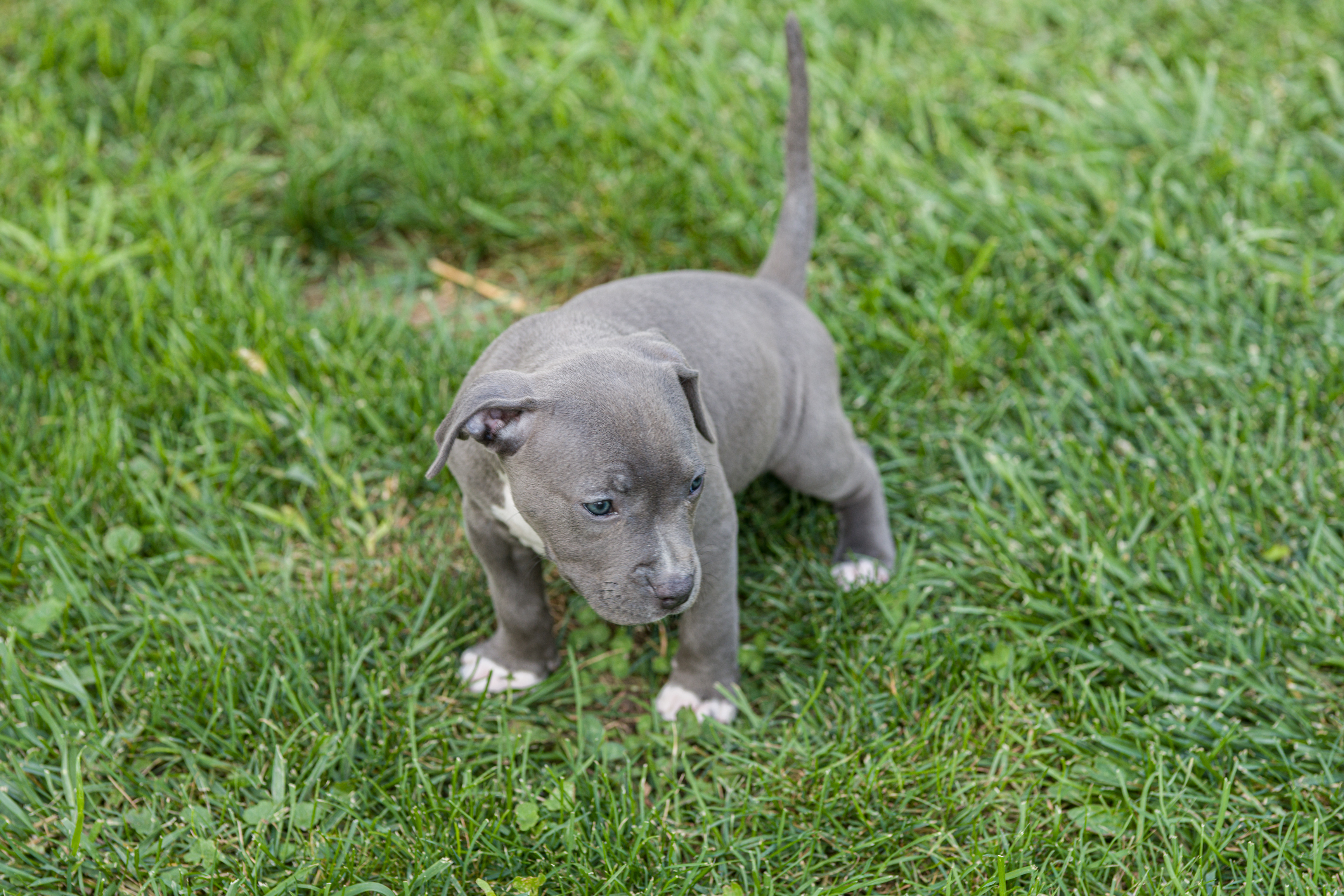Canine Herpesvirus is a disease that affects mostly young puppies. Herpesvirus is forever – once a dog has it, canine herpes will never go away.
How Common is Canine Herpes
It is estimated the canine herpes virus is carried by 70 percent of the canine population. Most dogs enter adulthood having been exposed as puppies, but they carry enough immunity to prevent the symptoms. However, they will shed the virus if they are stressed or if the immune system is compromised.
Canine Herpes Symptoms
Lesions and clinical signs of canine herpes depend on the sex and age of the dog. Male dogs don’t show symptoms of canine herpes most of the time, but they may have genital lesions – redness and inflamed lymph tissue at the base of the penis. Males may also develop ocular or nasal discharge when stressed, which is a major source of infection to other dogs and to any females that he is breeding.
Canine Herpes in Pregnancy
 Female dogs that are naïve to dog Herpes can experience fetal loss, mummies of early fetus, as well as premature birth and loss of puppies at birth or shortly after. The dangerous window for a female is three weeks before and three weeks after whelping. Exposure within this window results in puppy loss. Though a naive female will lose that litter, she will be immune for all future dog Herpes contact, including against litter loss. You want to make sure that she isn’t exposed to any dogs that may be sick during her pregnancy to pick up dog herpes or other viruses that can interfere with pregnancy.
Female dogs that are naïve to dog Herpes can experience fetal loss, mummies of early fetus, as well as premature birth and loss of puppies at birth or shortly after. The dangerous window for a female is three weeks before and three weeks after whelping. Exposure within this window results in puppy loss. Though a naive female will lose that litter, she will be immune for all future dog Herpes contact, including against litter loss. You want to make sure that she isn’t exposed to any dogs that may be sick during her pregnancy to pick up dog herpes or other viruses that can interfere with pregnancy.
Puppies can be exposed at birth as they pass through the vaginal vault. They will develop signs within three weeks of age, and if they make it past three weeks, they will survive. Clinical signs include anorexia, lethargy, and abdominal pain. Puppy deaths are often classified as “Fading Puppy Syndrome.”
Can You Test a Dog For Herpes Virus
Female dogs can have serum testing, while swabs of ocular and nasal discharge also work. Puppies should be submitted to lab for testing. Kidney hemorrhage is characteristic and the virus can be isolated for the liver, kidneys and lungs.
Canine Herpes Treatment
Once the dog is showing signs of herpes virus, the prognosis is guarded. Most puppies will die. Because therapy is ineffective, preventative measures are the only course of protection.
Canine Herpesvirus is considered temperature sensitive and prefers to replicate at temperatures less than 37°C (98.6°F). Knowing this, we try and control the virus with warm temperatures for the puppies that are not showing signs.
It is also very important to disinfect! The virus is readily inactivated by disinfectants. Try Virkon® or Oxine®. These are penetrating disinfectants that will sterilize the surface as well as get the virus underneath the surface.
Borrowed immunity from a herpes recovered mom can be given to a susceptible litter. A serum injection, 1.5 cc is best, from an immune mom can be given orally during the first 12 hours. You can repeat this serum again day three but you will have to inject at that point. I mix 50/50 with saline for the injection and give it IP (in the tummy.) You can give it via IV, but that is difficult on a puppy. IP is quick and just as effective.
Canine Herpesvirus Vaccine
In Europe they have a herpesvirus vaccine, but in the United States we do not. If importing a vaccinated dog, it’s important to realize that this vaccine does not prevent the virus, it just prevents the puppy loss. Vaccinated dogs still carry the virus and will spread it to your kennel. That is why so many import dogs introduce herpes to our kennel yet the import dog does not lose her puppies. She has that immunity from the vaccine that she passes to the puppies in colostrum.
Canine Herpesvirus Prevention
Once in a kennel, the Canine Herpesvirus is tough or impossible to eliminate. The plan includes exposing all breeding dogs to the virus before breeding, which results in titers high enough to prevent puppy loss. It’s important to give young females a natural immunity to prevent puppy loss in first-time moms. Talk to a veterinarian who has handled Herpes to lay out a game plan that will help prevent puppy loss in the future.
In addition, since herpes can go through the air, disinfect with Animal Facility Disinfectant, Rescue Disinfectant or Virkon. Good hygiene and hand washing after working with each mom and litter is important. The most common way puppies get herpes is when passing through the birth canal. Keep mom and her litter separate from the rest of your kennel for the first three weeks after the puppies are born.
What Happens After a Puppy Survives Canine Herpesvirus?

If exposed to canine herpesvirus, puppies generally do not make it. If puppies are exposed, keep them hydrated with electrolytes such as Breeder’s Edge Puppy Lyte. Since herpes is temperature-sensitive, it can also help to put puppies under a heat lamp or in a portable incubator such as the Puppywarmer® incubator at 101° F for two weeks if they are exposed. This will help to stop the herpesvirus from reproducing. Since that temperature in the incubator is too hot for mom, every two hours bring the puppies to her in order for them to nurse.
If you need help or have more questions on herpes in dogs, call us at 800.786.4751.
LEARN MORE:
Pet Safe Disinfectants: Dog Kennel Cleaner
When choosing dog kennel disinfectant, keep in mind the diseases you are targeting and the animals age. Learn which kennel cleaner to use against Parvo, ringworm and more.
8 Top Pet Health Issues
What are some of the most common dog and cat health problems? From parvovirus to fleas to canine herpesvirus. Check out the eight most common cat and dog health issues we help customers overcome.
Premature Labor in Dogs
Can a dog go into premature labor? When a pregnant dog goes into premature labor it's important to know what to do. Dr. Greer talks about causes, signs and intervention options.
Why Won’t My Dog Get Pregnant
Dog breeding problems can be challenging. Learn the most common causes of infertility in dogs.
Written by: Donald Bramlage, DVM
Donald Bramlage, Doctor of Veterinary Medicine, practiced veterinary medicine for 30+ years and is known for his work in managing parvovirus. He received his Doctor of Veterinary Medicine from Kansas State University in 1985. He served as Revival’s Director of Veterinary Services from 2011 until his retirement in 2019.